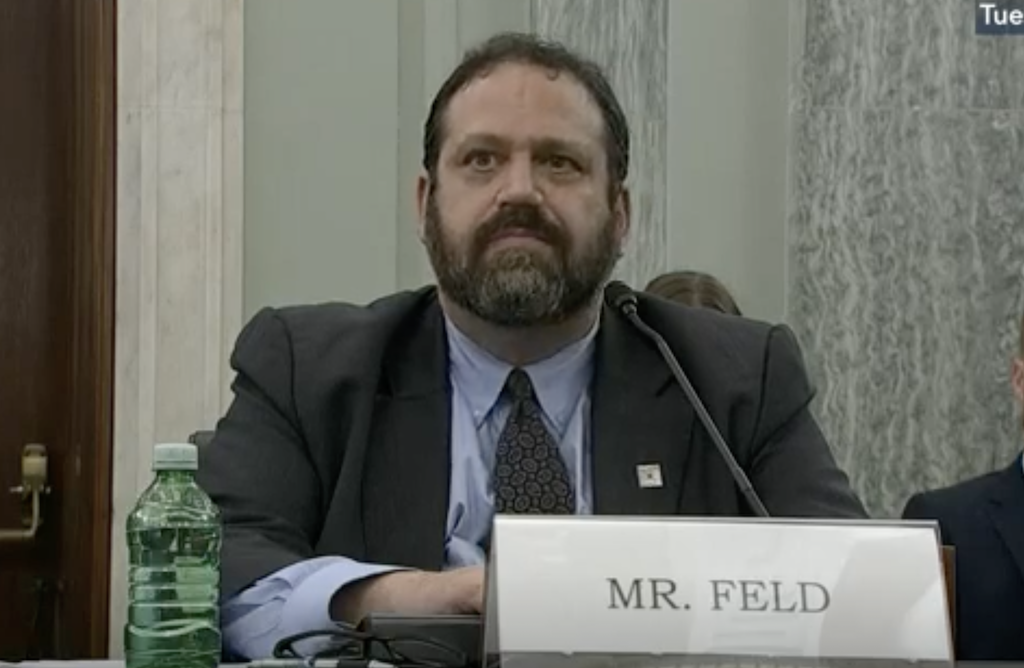Public Interest Groups Make Push on Proposed Digital Discrimination Rules
The commission is set to vote Wednesday on its proposed rules, which industry groups have opposed.
Jake Neenan

WASHINGTON, November 13, 2023 – Public interest groups are pushing the Federal Communications Commission to stand firm on proposed digital discrimination rules days before the commission votes on their adoption.
The FCC is required by the Infrastructure, Investment and Jobs Act to adopt rules promoting equal broadband service for a given provider’s subscribers. That includes preventing differences in access based on race, income level, religion, and other characteristics – known as digital discrimination.
The deadline for that adoption is Wednesday, November 15, the same day the commission will hold an open meeting and vote on its draft rules. Those draft rules will take a tougher stance on companies providing disparate broadband services, opting for a ‘disparate impact’ standard for identifying that discrimination. That means broadband providers could be in violation of the rules even if they are not intentionally withholding quality internet from a protected group.
Industry groups urged the commission last week to change course on this and are continuing to do so. But public interest groups are making a push of their own days before the vote, meeting with commission staff to support the proposed rules.
Since September 6, the think tank Public Knowledge has met with staff from every commissioner’s office to ask for clarifications and pushback on industry arguments against the rules, namely arguments on price consideration and evaluating potentially discriminatory policies.
The commission’s proposed rules would include the prices charged by broadband providers among factors it would consider when evaluating claims of digital discrimination. For example, a provider offering similar areas different prices for the same service could potentially be discriminatory.
The U.S. Chamber of Commerce said in an ex-parte filing last week that that would overstep the FCC’s authority under the infrastructure law, calling the policy “rate regulation.” Public Knowledge pushed back on that to commission staff, arguing price is among the terms and conditions the FCC is obligated to consider when ensuring nondiscriminatory service.
The bar for rate regulation is also high, the think tank wrote in a November 8 ex-parte filing, and policies that affect prices have been found in court to fall short of that bar, so long as they do not explicitly mandate certain prices for certain services.
Multiple industry groups and major telecommunications companies also pointed to Inclusive Communities, a 2015 Supreme Court case related to disparate impact discrimination claims. They argued the FCC’S rules would run afoul of the framework set up in that decision by opening a broader range of business practices to scrutiny.
Public knowledge argued the Fair Housing Act, the law at issue in the case, is different from the updated Communications Act of 1934 language that mandates the FCC’s digital discrimination rules. Unlike the FHA, the Communications Act has an intent beyond the fair treatment of consumers, explicitly calling for “steps to ensure that all people benefit from equal access to broadband internet access service.” That makes the Inclusive Communities framework, which shields legitimate business practices from being found to be discriminatory, not applicable, the group wrote.
The National Digital Inclusion Alliance also met with FCC staff last week to express support for the rules, calling them “a critical step forward in dismantling the status quo.”
NDIA and the Leadership Conference on Civil and Human Rights both asked the commission to commit to releasing regular data on digital discrimination complaints and their outcomes.
Commissioners will vote on the rules and other measures at the FCC open meeting on Wednesday.











Member discussion